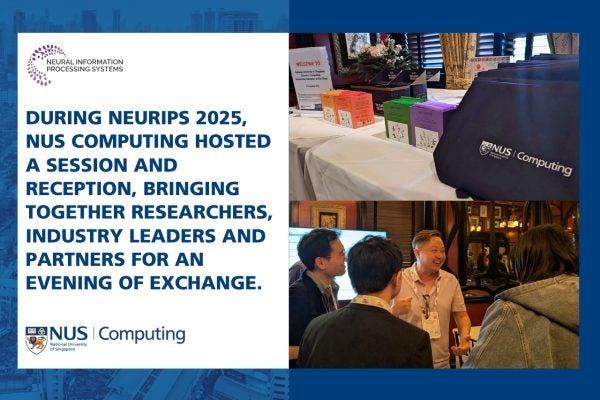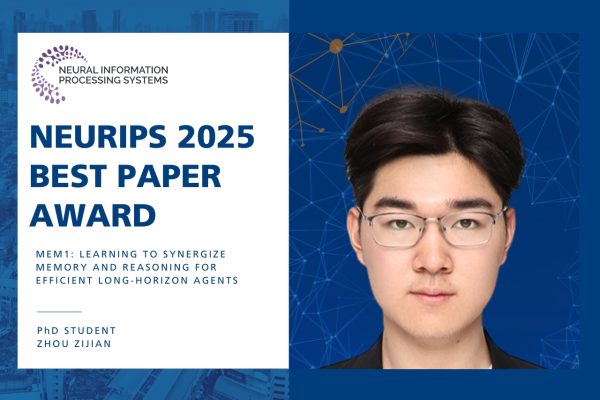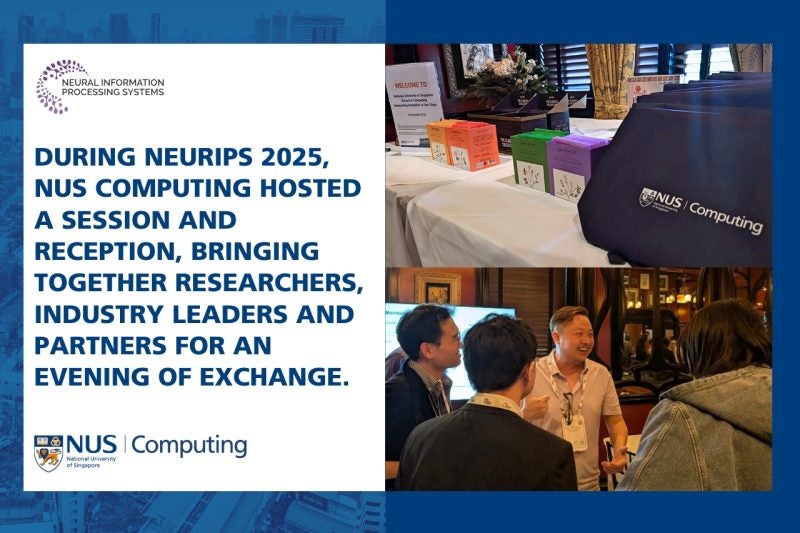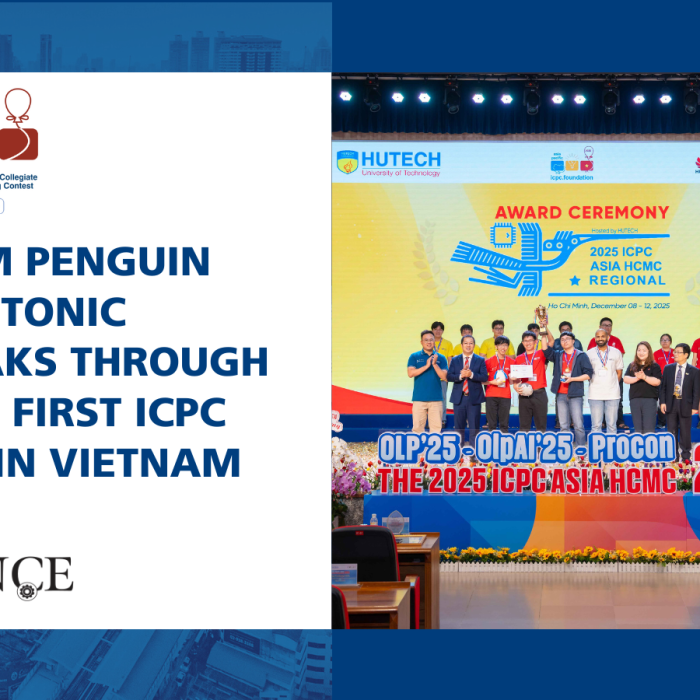News Hub
Home » Highlights
29 December 2025
During NeurIPS week on 4 December, NUS Computing hosted its first network session and reception in San Diego, bringing together researchers, industry leaders, and partners for an evening of exchange and connection.
26 December 2025
We’re proud to share that NUS Computer Science PhD student Zhou Zijian has won the Best Paper Award at the NeurIPS 2025 Workshop on Multi-Turn Interactions in Large Language Models
22 December 2025
NUS School of Computing has achieved another historic milestone in competitive programming, clinching its first-ever victory at the ICPC regional contest in Vietnam after years of near-misses at one of Asia-Pacific circuit’s most fiercely contested sites.
19 December 2025
When five members of the NUS FinTech Society touched down in Rome this October, they carried not just laptops, but the quiet ambition to make their mark on one of Europe’s most respected blockchain hackathons: ETHRome 25.
18 December 2025
NUS School of Computing has capped an exceptional competitive programming season with another landmark achievement. Team Strong Zero has secured NUS' first-ever ICPC regional victory in Japan, completing a rare double just weeks after its historic win in Taiwan.
12 December 2025
NUS has retained its top position in Singapore and ranked 3rd in Asia in the QS Asian University Rankings 2026.
19 December 2025











